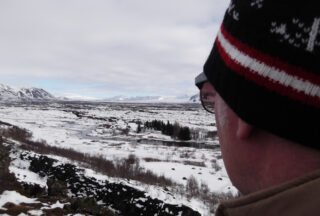Andrea cares for her daughter Nell who has Mitochrondrial disease. In the last year Nell has also been diagnosed with Melas, which has led to stroke-like episodes and swellings in the brain.
In 2020 Nell spent many months in hospital. This, along with Covid and the lockdowns, has been a huge strain on them both.
“Nell has deteriorated a lot over the last year. She had swellings on the brain, which led to stroke-like episodes. She still has swellings and her abilities have gone down. She has difficulty speaking and needs a lot of help.
I care for her full time and have 5 hours a week respite when a carer comes. At the moment there’s not much I can do with that time, but I see a friend or take the dog for a walk.
It’s been the worst year ever. A very scary year. I’ve been a carer for 31 years. Before Nell, I cared for my parents. I can’t put a value on the importance of taking time to myself. It’s vital for maintaining my mental health.
January and February was the most depressing, awful time for me. We so looked forward to our carer Rosie coming. It really gave us something to look forward to.
Rosie started coming through an agency and she was wonderful. When I got the direct payment I started asking for her to come. Nell and I love her – she’s like a part of the family.
It’s been such an awful year for me watching Nell disappearing before my eyes. During the lockdowns, Nell and I would say ‘Rosie’s coming tomorrow’, and it would be something for us both to look forward to.
I tell Nell that those 5 hours are mine. It’s the only time I have each week when I’m not available to her. In normal times I’d meet a friend for a coffee and have a good chat for an hour. It’s so important.
I do have support – I met other parents when Nell went to special school and the biggest support for me has been the Lilly Foundation (a Mitochrondrial disease charity) and a Melas support group – they’re very good and people offer suggestions to help each other.
The lockdowns have been hard for us. Nell has deteriorated and I don’t think she would have so much if we’d been able to go out and see people more. That would have helped with her speech. If we hadn’t had Rosie though, it all would have been so much worse.”




